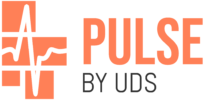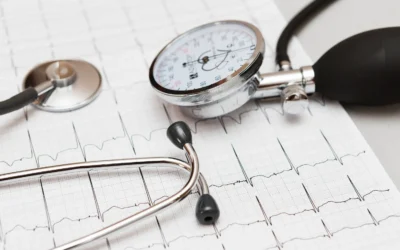Heart screenings play a crucial role in the early detection and prevention of cardiovascular diseases, which remain a leading cause of death worldwide. These screenings allow healthcare providers to assess heart health, identify potential risks, and recommend lifestyle or medical interventions to improve long-term outcomes. However, the effectiveness of heart screenings heavily depends on how well individuals prepare for their appointments.
A well-prepared patient ensures that their healthcare provider has all the necessary information to make informed decisions. Bringing the right documents, medical history, and test results can enhance the accuracy of assessments and prevent unnecessary delays. This article provides a comprehensive checklist for heart screening appointments, ensuring that individuals maximize the benefits of their visit.
In This Article
Understanding Heart Screenings
Heart screenings encompass a variety of tests aimed at evaluating different aspects of cardiovascular health. These tests range from simple measurements, like blood pressure and cholesterol levels, to more complex procedures such as electrocardiograms (ECG), echocardiograms, and stress tests.
Common Tests Conducted During Heart Screenings
| Test Name | Purpose | What It Measures |
|---|---|---|
| Blood Pressure Test | Identifies hypertension and cardiovascular risk | Systolic and diastolic pressure |
| Cholesterol Panel | Assesses lipid levels linked to heart disease | LDL, HDL, total cholesterol, triglycerides |
| Electrocardiogram (ECG/EKG) | Detects irregular heart rhythms or damage | Heart rate, rhythm, electrical activity |
| Echocardiogram | Evaluates heart structure and function | Heart size, valves, pumping strength |
| Stress Test | Measures heart function under exertion | Heart rate, blood pressure, oxygen levels |
Each test provides crucial insights into different facets of heart health, helping physicians detect abnormalities before they progress into severe conditions.
Essential Items to Bring to Your Heart Screening Appointment
1. Personal and Family Medical History
Bringing a comprehensive medical history can significantly improve the efficiency and accuracy of your screening. Your doctor will assess patterns and risk factors based on past and family medical conditions. Ensure you have:
- Personal Medical History: A list of past diagnoses (e.g., hypertension, diabetes, previous heart conditions).
- Family Medical History: Any relatives with heart disease, stroke, high cholesterol, or other relevant conditions.
- Past Surgeries or Procedures: Details of any prior heart-related surgeries or treatments.
- Symptoms and Concerns: Any symptoms like chest pain, shortness of breath, dizziness, or fatigue.
2. Current Medications and Supplements
A complete list of medications, including over-the-counter drugs and supplements, is essential for assessing potential interactions. The list should include:
- Prescription Medications: Name, dosage, and frequency.
- Over-the-Counter Drugs: Pain relievers, antacids, or allergy medications.
- Vitamins and Supplements: Fish oil, herbal remedies, or dietary supplements that could affect heart health.
| Example Medication List | Dosage | Frequency | Purpose |
|---|---|---|---|
| Lisinopril (for BP) | 10 mg | Once daily | Lowers blood pressure |
| Atorvastatin | 20 mg | Once daily | Reduces cholesterol |
| Aspirin (low-dose) | 81 mg | Once daily | Blood thinner |
| Omega-3 Supplements | 1000 mg | Twice daily | Supports heart health |
3. Recent Lab Test Results
If you have undergone any medical tests in the past six months, bring the results for comparison. These may include:
- Blood tests (cholesterol, blood sugar, kidney function).
- Electrocardiograms or imaging studies.
- Any previous heart screening results.
Providing these records helps your doctor track progress or identify worsening conditions.
4. Insurance and Identification Documents
To ensure smooth check-in and billing, bring:
- Health Insurance Card: Covers costs associated with tests.
- Government ID: Required for verification purposes.
- Referral Forms (if applicable): Some screenings require physician referrals.
5. A List of Questions for Your Doctor
To maximize the value of your appointment, prepare questions regarding:
- The necessity and risks of specific tests.
- Interpretation of past results.
- Lifestyle modifications to improve heart health.
- Medication adjustments or new treatment options.
Bringing written questions ensures you don’t forget important concerns during the visit.
How to Prepare for Your Heart Screening
Dietary and Medication Guidelines
Certain tests require fasting or medication adjustments. Follow these general guidelines:
- Fasting (if required): Cholesterol and glucose tests often require fasting for 8–12 hours.
- Hydration: Drink water unless instructed otherwise.
- Medication Adjustments: Ask your doctor if you should temporarily stop any medications, particularly beta-blockers or blood thinners, before the test.
Clothing and Comfort Considerations
Wear comfortable attire, especially if undergoing a stress test.
- For ECGs and Stress Tests: Loose-fitting clothes and sneakers.
- Avoid Lotions and Oils: These can interfere with electrode placement.
Arrival and Check-In
- Arrive 15–30 minutes early to complete paperwork.
- Carry all required documents, test results, and lists mentioned earlier.
What to Expect During the Screening
Step 1: Medical History Review
Your doctor will go over your medical history, symptoms, and risk factors.
Step 2: Physical Examination
A basic assessment, including checking heart rate, blood pressure, and weight.
Step 3: Diagnostic Tests
Depending on the findings, you may undergo one or more tests such as ECGs, cholesterol checks, or echocardiograms.
Step 4: Discussion of Findings
Your doctor will discuss test results and recommend any further steps, lifestyle modifications, or treatments.
Post-Screening Considerations
After the screening, it’s important to:
- Follow up on recommended lifestyle changes or medications.
- Schedule future screenings if necessary.
- Maintain a heart-healthy lifestyle, including diet, exercise, and stress management.
| Key Post-Screening Actions | Why It Matters |
|---|---|
| Follow doctor’s recommendations | Prevents worsening conditions |
| Continue prescribed medication | Maintains heart function |
| Adopt a heart-healthy diet | Reduces risk of disease |
| Exercise regularly | Strengthens cardiovascular system |
Conclusion
Thorough preparation for heart screening appointments is critical in maximizing the effectiveness of these health assessments. By bringing the right documents, test results, and medical history, individuals can help healthcare providers make more accurate diagnoses and recommendations. Additionally, understanding the purpose of each test, following preparation guidelines, and asking informed questions can improve overall heart health outcomes.
Heart screenings serve as a proactive step toward preventing cardiovascular diseases. A well-prepared patient not only ensures a smoother appointment process but also contributes to better long-term health by taking an active role in their well-being.
References
- American Heart Association. (n.d.). Heart-health screenings. Retrieved March 29, 2025, from https://www.heart.org/en/health-topics/consumer-healthcare/what-is-cardiovascular-disease/heart-health-screenings
- Cleveland Clinic. (n.d.). Calcium score test. Retrieved March 29, 2025, from https://my.clevelandclinic.org/health/diagnostics/16824-calcium-score-screening-heart-scan
- RadiologyInfo.org. (n.d.). Cardiac CT for calcium scoring. Retrieved March 29, 2025, from https://www.radiologyinfo.org/en/info/ct_calscoring
- Princeton Radiology. (n.d.). CT cardiac calcium scoring prep. Retrieved March 29, 2025, from https://www.princetonradiology.com/service/ct/ct-cardiac-calcium-scoring-prep/
- American Heart Association. (n.d.). Pre-participation cardiovascular screening of young competitive athletes. Retrieved March 29, 2025, from https://www.heart.org/-/media/Files/About-Us/Policy-Research/Policy-Positions/Healthy-Children-and-Schools/Athlete-Screening.pdf
- American Heart Association. (n.d.). Coronary artery calcium test. Retrieved March 29, 2025, from https://www.heart.org/en/health-topics/heart-attack/diagnosing-a-heart-attack/cac-test
- ColumbiaDoctors. (n.d.). Cardiac calcium score test services. Retrieved March 29, 2025, from https://www.columbiadoctors.org/specialties/radiology/our-services/computed-tomography-ct/cardiac-calcium-score-test










0 Comments